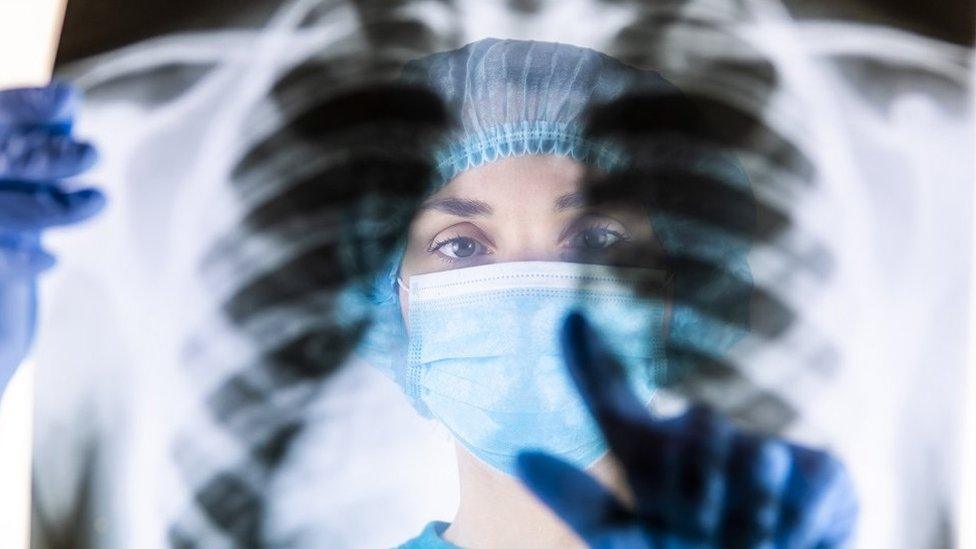Renal cancer patient is NI's first to get 'innovative' radiotherapy
- Published
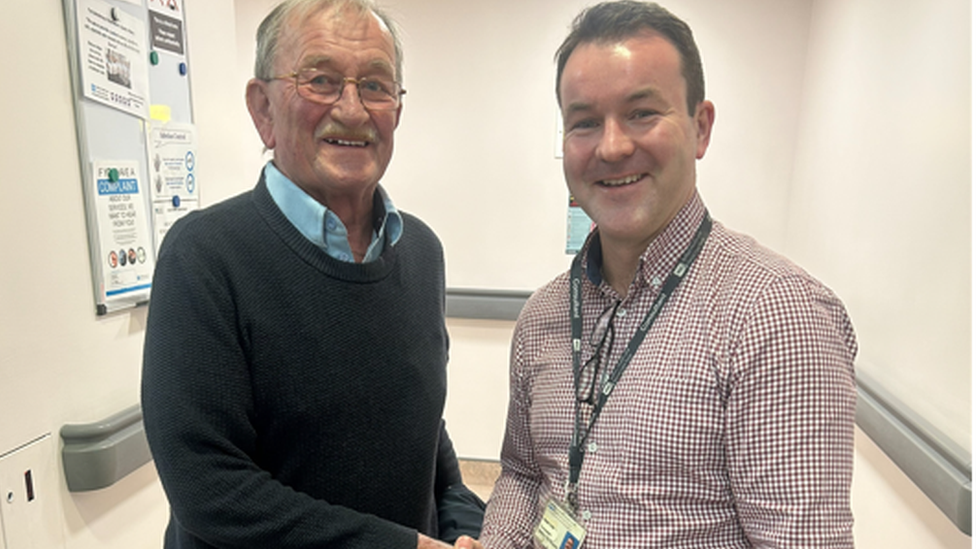
Patrick Magee has been receiving radiotherapy treatment under the supervision of Dr Aidan Cole
Specialist radiotherapy treatment has been used on a renal cancer patient for the first time on the island of Ireland.
Patrick Magee, from Downpatrick, County Down, is not suitable for surgery on his kidneys due to other medical issues.
So this less invasive treatment is treating the cancer instead.
"I was a bit worried at the start," the 80-year-old said. "When you hear cancer it scares you."
He added: "I wasn't fit for surgery but then I met Dr Cole and I felt settled. No needles and no operation.
"Hopefully, I am sorted now, and Dr Cole won't be seeing me again."
What is stereotactic radiotherapy?
The cancer clinic at the City Hospital in Belfast uses stereotactic radiotherapy (SABR).
This targets the tumour with more precision than conventional radiotherapy.
This allows high doses to be delivered to the cancer's location, with normal tissue nearby less affected.
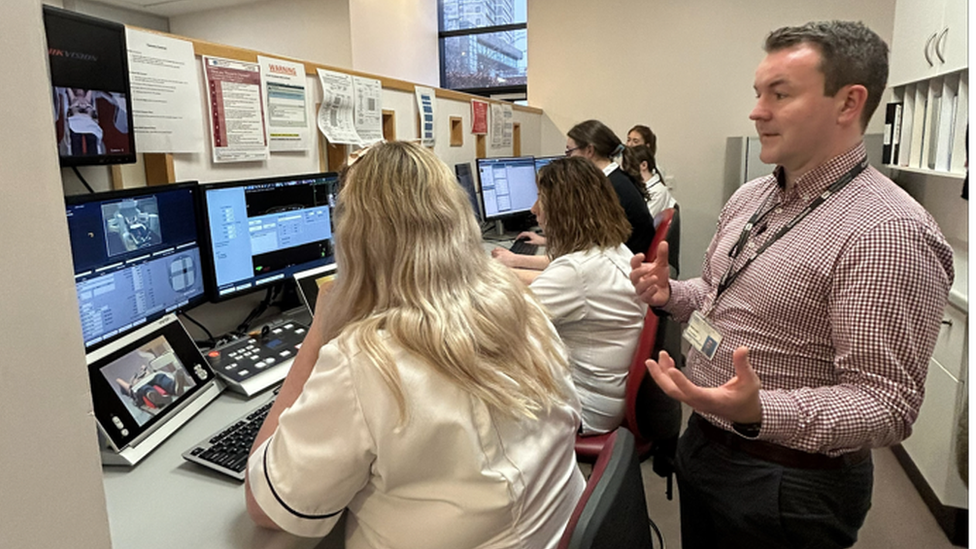
Dr Cole said the treatment is designed to give maximal control and cure for many years to come
Oncologist Dr Aidan Cole said in decades gone by radiotherapy "did not really work for these types of cancers" because only a small dose could be delivered to kidney tumours.
"Because the technology is much better, we can deliver it so much more accurately and we can give much higher doses," he said.
How stereotactic radiotherapy works
Dr Cole said the treatment had undoubtedly revolutionised the outlook for cancer patients in Northern Ireland.
"This is an exciting, innovative treatment for cancer patients in Northern Ireland," he added.
"It offers a brand new treatment, which is curative, which can give long-term control."
During the Covid pandemic, Dr Cole said there was a 50% reduction in the number of people being diagnosed with renal cancer.
"There are a lot of people presenting now with tumours that are bigger, with no treatment options at all, the prospect of a surgery that may leave them in hospital for many months or put their life at risk with an anaesthetic," he said.
"Now they have a different treatment option."
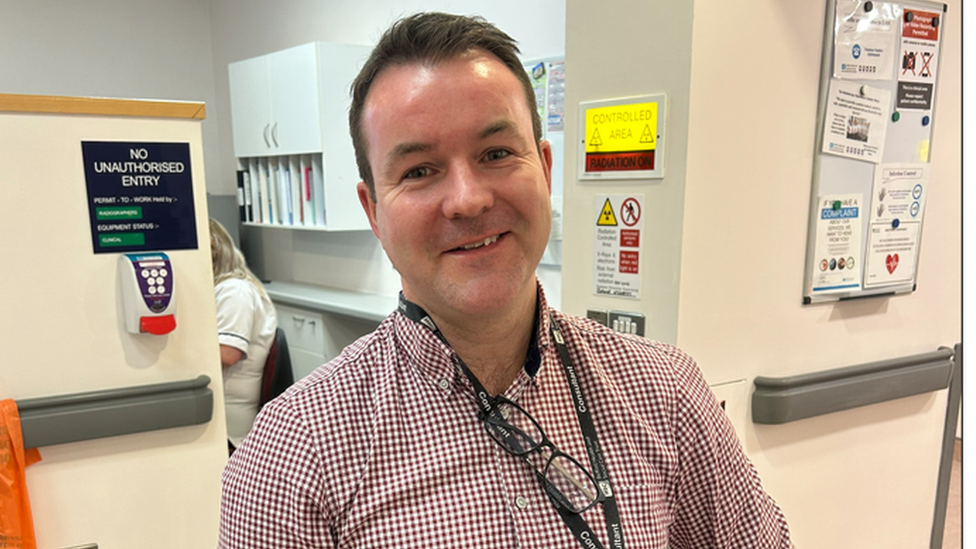
Dr Cole said it is nice to be ahead of the curve in terms of the treatment offered
Dr Cole said previously these patients were "untreatable, incurable and now they have the hope that they can be moved into a curative setting".
"That is pretty dramatic for a cancer treatment," he said.
"This is not designed to make you feel a little bit better or make you live a little bit longer.
"This treatment is designed to give maximal control and cure for many years to come."
Dr Cole said there were medical staff at the clinic who were "really pushing the boundaries of treatment with radiation, and we are delighted to say that we can lead the way here".
"We know a lot of people who are doing similar treatments around the world, and we've come together with them," he added.
"But it is nice to be ahead of the curve and to offer patients treatment that isn't available anywhere else."
Related topics
- Published26 October 2023
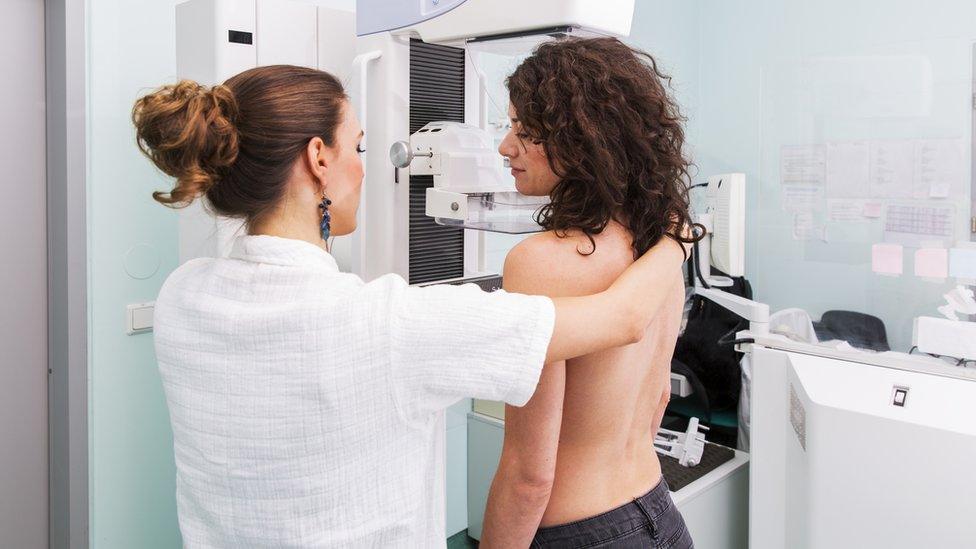
- Published14 June 2023
